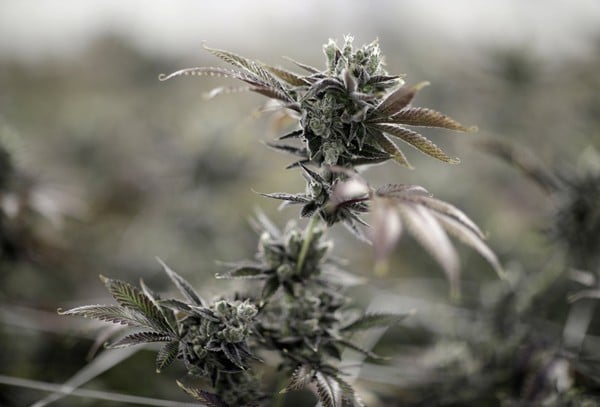The American College of Obstetricians and Gynecologists (ACOG) continues to recommend that clinicians discourage pregnant and breast-feeding women from using marijuana, according to an interim update to a committee opinion.
The group notes that currently available data are insufficient to evaluate the drug’s effects on infants. However, as states continue to legalize marijuana, women may mistakenly believe that it is safe for use during pregnancy and lactation.
“Because the effects of marijuana use may be as serious as those of cigarette smoking or alcohol consumption, marijuana also should be avoided during pregnancy,” the authors write on behalf of ACOG’s Committee on Obstetric Practice.
“[B]ecause of concerns regarding impaired neurodevelopment, as well as maternal and fetal exposure to the adverse effects of smoking, women who are pregnant or contemplating pregnancy should be encouraged to discontinue marijuana use,” they say.
The committee opinion is published online September 21 and in the October issue of Obstetrics & Gynecology. It updates the committee opinion of the same name published in July 2015, adding new research.
ACOG continues to recommend that clinicians tell women the purpose of screening for marijuana use is to facilitate treatment of substance abuse and not to punish or prosecute patients. However, in the updated recommendations, ACOG says clinicians should inform women “of the potential ramifications of a positive screen result, including any mandatory reporting requirements.”
Specific recommendations in the updated committee opinion include the following:
Ask all women trying to conceive or in early pregnancy about their use of tobacco, alcohol, drugs (including marijuana), and other nonmedical use of medications.
Counsel women who report marijuana use about potential adverse health consequences associated with continued marijuana use during pregnancy.
Encourage pregnant women and those considering pregnancy to discontinue marijuana use.
Encourage pregnant women and those considering pregnancy to discontinue using medicinal marijuana and use another therapy that has better pregnancy-specific data.
Because the data are insufficient to evaluate the effects of marijuana use on infants during lactation and breast-feeding, discourage lactating and breast-feeding women from using marijuana.
New Research on Effects of Marijuana Use During Pregnancy
“Currently available evidence does not suggest an association between marijuana use in pregnancy and perinatal mortality, although the risk of stillbirth may be modestly
increased,” the authors write. A meta-analysis of 31 observational and case-control studies found similar rates of perinatal death (relative risk [RR], 1.09; 95% confidence interval [CI], 0.62 – 1.91) but somewhat higher stillbirth rates (RR, 1.74; 95% CI, 1.03 – 2.93) among marijuana users compared with nonusers.
The authors urge caution when interpreting these results, as they “could not be adjusted for tobacco use and there was a tendency in this study for significant associations between marijuana use and other adverse outcomes to become statistically insignificant when adjusted estimates were pooled.”
That same meta-analysis found no association between marijuana use alone and increased risk for birthweight less than 2500 g. When the researchers stratified marijuana use by amount of use, those who used marijuana less than weekly had no increased risk of delivering an infant weighing less than 2500 g (8.8% vs 6.7%; RR, 1.22; 95% CI, 0.91 – 1.64). However, women who used marijuana at least once weekly were significantly more likely to deliver an infant weighing less than 2500 g (11.2% vs 6.7%; 95% CI, 1.44 – 2.45).
In a recent retrospective cohort study that was not part of the meta-analysis, the risk for birthweight lower than the 10th percentile was modestly increased among marijuana users after the researchers adjusted for confounders among tobacco nonusers (16.3% vs 9.6%; odds ratio, 1.36; 95% CI, 1.09 – 1.69) and tobacco users (20.2% vs 14.8%; odds ratio, 1.21; 95% CI, 1.00 – 1.45).
The meta-analysis also found that women who used marijuana at least weekly had an increased risk for preterm birth before 37 weeks’ gestation compared with those who used marijuana less often (10.4% vs 5.7%; RR, 2.04; 95% CI, 1.32 – 3.17). When the researchers stratified marijuana use by concomitant tobacco use, marijuana use by itself was not associated with an increased risk for preterm birth; however, use of both substances was, when compared with women who used neither substance (11.4% vs 5.7%; RR, 1.85; 95% CI, 1.21 – 2.81).
A retrospective cohort study published at the same time as the meta-analysis found the risk for preterm delivery among marijuana users was seen only among women who also used tobacco. “Thus, concurrent tobacco use may be an important mediator for some
adverse pregnancy outcomes among marijuana users. Of note, another report observed no increase in preterm delivery among marijuana users regardless of reported tobacco use,” the committee authors explain.
New Findings About Prevalence of Marijuana Use During Pregnancy
Approximately 2% to 5% of women report marijuana use during pregnancy; however, use is as high as 15% to 28% “among young, urban, socioeconomically disadvantaged women,” according the committee authors.
“Notably, 34–60% of marijuana users continue use during pregnancy, with many women believing that it is relatively safe to use during pregnancy and less expensive
than tobacco,” the authors write. “A recent study noted that 18.1% of pregnant women reporting marijuana use in the past year met criteria for marijuana abuse, or dependence, or both.”
As in the previous recommendations, the authors write, “Seeking obstetric-gynecologic care should not expose a woman to criminal or civil penalties for marijuana use, such as incarceration, involuntary commitment, loss of custody of her children, or loss of housing. Addiction is a chronic, relapsing biological and behavioral disorder with genetic components, and marijuana use is addictive in some individuals. Drug enforcement policies that deter women from seeking prenatal care are contrary to the welfare of the mother and fetus.”
credit:420intel.com



